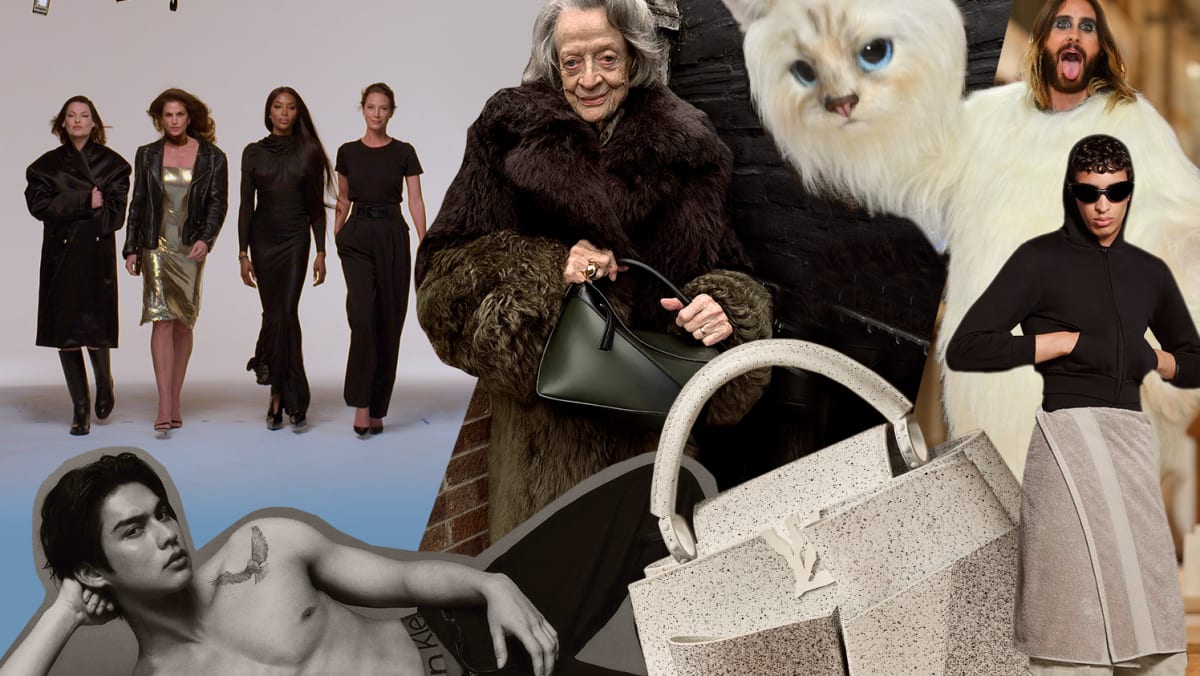And then we have the Balenciaga Towel Skirt (S$1,250) released online in November. Made of beige terry cotton, and fastened with hidden buttons, the skirt became the object of trolling by Ikea.
The furniture giant’s Instagram introduced an almost-identical version of the skirt – the Vinarn towel, captioned as “a 2024 spring fashion essential”, was modelled by a gormless pale man (a type preferred by Balenciaga) styled mirroring the Balenciaga visual, complete with a black hoodie, menacing shades, relaxed khakis and black shoes. The punchline was the price for the Ikea towel – a mere S$12.50. And just like that, a meme was born in a moment that gave marketing back all the sparkling levity, mischievous irony, and lustre that it had long lost. Of course, Balenciaga has a long history of re-purposing the aesthetics of mass consumer goods – in particular, it earned its stripes selling a S$2,996 blue tote bag that looked identical to Ikea’s shopping bag that costs only S$1.
ZARA AND THE RAVAGES OF WAR
In November, Zara, the Spanish fast fashion retailer, faced backlash for its advertising campaign called The Jacket. Shot by the esteemed Tim Walker, and modelled by supermodel Kristen McMenamy, the campaign’s imagery of shattered walls and embalmed mannequins angered many who thought the white body wrapping looked similar to victims of the Gaza conflict. The images, posted to Zara’s official social media channels, sparked off a mutinous furore for mocking the destruction in one of the most violent conflicts of all time. Zara issued an apology and removed the images from its official accounts. The fashion giant stated that the images were created well before the war had broken out, and any offense was unintended but the damage had been done.

